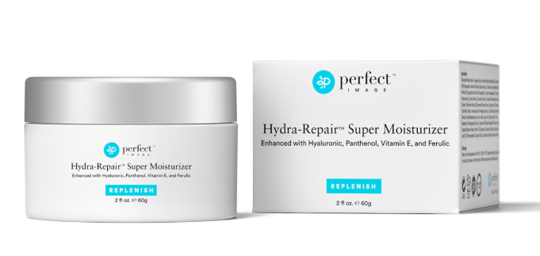How many times have you read about a skincare product and wonder what the “buzz words” really mean? It’s easy to add a bit of sizzle and promise with carefully crafted sentences that promise more to consumers than any moisturizer, cleanser, treatment can actually deliver. These buzz words or crafted descriptions are done to get people interested in buying a product based on what the words say versus what the words really mean (0r don’t mean)!
How to Decode the Lingo on Skincare and Beauty Products:
What Is Merely Marketing “Hype?”
By David Petrillo
www.perfectimage.com
No doubt you have seen buzzwords like “all-natural,” “hypoallergenic” and “patented” hundreds of times. But have you ever stopped to ask what they mean?
Beauty companies love terms like these because they suggest concrete benefits that don’t have to be backed up by science. In fact, as long as they don’t claim to change the body’s structure or function, companies don’t need FDA approval to market new products to the public and are not required to provide any research to prove their claims. These days, one would almost need a degree in chemistry to understand some of the catch-phrases on skincare products. David Petrillo is an LA-based beauty chemist and founder of skincare company www.perfectimage.com who wants to help consumers understand what this frequently used language means.
Gone are the days when simple statements such as “oil-free” would suffice. Perhaps the most common phrase is “clinical formula“.
As David Petrillo explains, “this has no real meaning. It does not necessarily indicate that the formula was produced in a medical clinic as the manufacturers would have people believe. Clinically tested could very well indicate that the product was tested, but what was it tested for? What were the results? Essentially, this marketing claim is meaningless.”
Here are 10 more commonly misunderstood terms to watch for:
“All-natural”
It doesn’t mean the product is organic or chemical-free. After all, chemicals are “natural,” too.
“Organic”
The US Department of Agriculture certifies organic food ingredients found in cosmetics, but not essential oils or plants used for cosmetic purposes. To carry the USDA Organic seal, a product must contain at least 95% organic food. Other countries have their own organic certification labels, such as COSMOS and NaTrue in the European Union and NASAA in Australia. Read COSMOS Standardizes Organic Product Labels to learn more.
“Hypoallergenic”
Think this guarantees you won’t have a reaction? Think again. These products can still contain ingredients some people are allergic to, including preservatives and fragrance.
“Fragrance-free”
These products may not have a noticeable smell, but can still contain “masking” scents to cover up ingredients with unpleasant odors. Look for the words “no fragrance added” instead.
“Non-comedogenic”
While non-comedogenic products are usually oil-free and therefore less likely to cause breakouts, there’s no guarantee they won’t. In fact, many contain dimethicone, a known acne aggravator.
.Helps pre-mature aging.”
Perhaps the most appealing of all claims from a consumer standpoint is this statement.
If a product truly prevented premature aging by affecting the structure of the skin, it would be classified as a drug and therefore would require FDA approval. Manufactures circumvent this by utilizing the fact that sunscreens prevent premature aging by decreasing the damaging effects of ultraviolet light on the skin. Therefore, if a product contains sunscreen, it may state “prevents premature aging’ on the label.”
Patented Technology
This is a marketing term used to provide, sometimes falsely, a sense that the consumer is buying something that is highly innovative. But patents aren’t necessarily a surefire sign that something is groundbreaking. Patents are sometimes authorized based on a technical change rather than a scientific breakthrough meaning new combinations of ingredients or methods of production can be promoted as being “patented technology.” What consumers really want to do is identify what their skin needs and buy products with ingredients that are proven to effectively improve the skin in that area.
Maximum strength
This is a term used often by skin cleansers and moisturizers. But this is a relative term, and consumers don’t exactly know what the maximum strength entails or how the product benefits their skin more than the competition.
Hydrating
Products and consumers often use hydrating and moisturizing interchangeably, but this is inaccurate. If you want to hydrate your skin, this means you have skin that has become dull and possibly dry — you need a humectant such as hyaluronic acid or glycerin to draw water to the cells. If you need to moisturize your skin, you need a moisturizer that seals water in to prevent water loss. Today there are a variety of moisturizers, especially gel moisturizers, that have components that are both moisturizing and hydrating. These are good, but your choice of product depends on the individual condition of your skin. If you have extremely dry or dull skin, you may need one product that performs one function very well, rather than a jack of all trades.
FDA Cleared
The FDA has different protocols for skincare products that make cosmetic claims as opposed to those that make more medical claims, such as promising to increase the production of collagen in the skin. Since that is a body function, the FDA treats those differently than normal skincare products. However, the FDA just stipulates that the product being sold is safe to use in the manner in which it is directed to be used. FDA approval is not a credential that shows the superiority of results.
Want a bit more information about PERFECT IMAGE? Check out this video from youtube:
About the Expert: David Petrillo
David Petrillo graduated in 2007 with a degree in Chemistry from Missouri University prior to working as a researcher in the cosmetics industry. His experiences in the lab led him to found his own company, Perfect Image, with a vision of making medical-grade peels and other cosmetic products more affordable.
With ten plus years of experience in the lab and equipped with the experience of formulating his own products to innovate the industry — David has an amazing skincare brand and also is a great resource for questions about skincare!
Want more information about David Petrillo or his Perfect Image products? Visit this website: www.perfectimage.com
Follow Perfect Image on these social media channels:
Facebook: https://www.facebook.com/PerfectImageLLC
Instagram: https://www.instagram.com/perfectimagepeel/
Twitter: https://twitter.com/perfectImageLLC
Pinterest: https://www.pinterest.com/Perfectimagepeel/_created/
Youtube: https://www.youtube.com/channel/UCLDO4qO4cuMyhqGoWLp_x8A
LA-Story.com would like to thank David Petrillo for this very smart breakdown about what key phrases and buzz words about skincare products (and most beauty products) really mean! This list that David has provided really provides a lot of insight and “truth” to the notions and buzz words that most cosmetic or skincare companies use to sell products.
Stevie Wilson
LA-Story.com
Want to leave a comment or ask a question? Please send an email to stevie.wilson@LA-Story.com
________________________DEALS and STEALS(Affiliate Links)
I curate deals that offer bonuses, bargains, and great products –and some are very specifically for this site to feature to my audience because I want my audience to get amazing products from great brands!
Disclosure: some of the links on this post might have affiliate links! It costs you nothing. If you buy something, the brand pays me a small percentage.
If you purchase via my link, I make a very small percentage for that purchase. It does not add any additional cost to the product. The price you see is the retail price (depending on store or vendor) .
Sunscreens Are Essential in Summer: Try COOLA Full Spectrum 360 Sun Silk Drops SPF 30

COOLA’s breakthrough Sun Silk Drops— your daily Full Spectrum 360° protection from the sun, environmental toxins, and digital overexposure.
Their advanced organic formula is light-as-air yet protects against broad-spectrum UVA/UVB, IR (infrared), and HEV (high energy visible) Light, meaning they’ve got you covered from beach to board meeting. A fast-absorbing complex blend of plant stem cells and patented LightWaves Defense [JS+M] technology helps to prevent visible signs of aging from both indoor and outdoor daily aggressors. Finally, full-spectrum organic skincare that keeps up with your everyday modern lifestyle!
What else you need to know:
This product is formulated without oxybenzone. It is vegan, non-GMO, TSA-friendly, and cruelty-free.
Available at Sephora.com and Coola.com
Subscribe to RSS headline updates from: http://feeds.feedburner.com/la-story/Bpyd
Powered by FeedBurner
If you are going to feature content from LA-Story.com including images, podcasts, or videos including the accompanying text, please respect copyright provisions. We require a notation of content origination (meaning credit tag), a link- back to the specific page & please email the link to stevie.wilson@la-story.com before the piece goes live.
LA-Story.com, LA-Story Recessionista, Celebrity Stylescope, Celebrity Style Slam Trademark/Copyright: KBP Inc./TNBT Inc 2007-22


